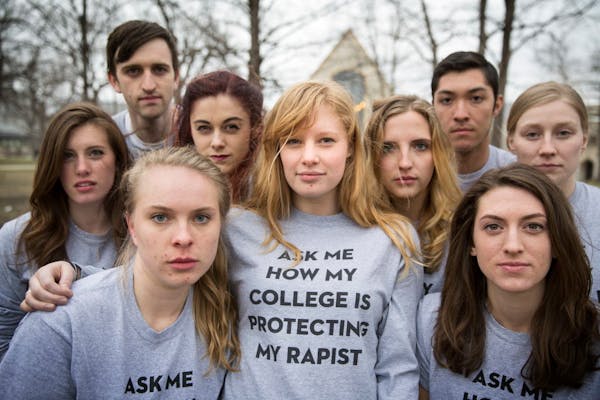The University of Minnesota is creating a special panel of students, faculty members and staff to decide if students accused of sexual assault should be disciplined.
Officials said they plan to train a pool of 35 volunteers to preside over hearings, as part of an effort to cope with an upsurge in complaints about sexual misconduct on campus.
"We thought we could make some changes, make the overall process move faster," said Kimberly Hewitt, director of the U's Office of Equal Opportunity and Affirmative Action, which investigates complaints of sexual assault.
In the past, students who were unhappy with the outcomes of those investigations could request a hearing before the Campus Committee on Student Behavior. But Hewitt said there was growing concern that the committee members, who also handle complaints about cheating and plagiarism, needed more training to handle allegations about sexual assault.
Under federal rules, colleges and universities are required to investigate sexual assault as a form of student misconduct, and take appropriate action.
"We came to an understanding that more training needed to be done with this particular group," said Katie Eichele, director of the U's Aurora Center for Advocacy and Education, who was part of an advisory group that recommended the changes.
The new panel will get 20 hours of training, compared with five hours in past years, according to Eichele. The training will include, for example, why trauma victims — especially rape survivors — often delay coming forward, as well as how to weigh the credibility of witnesses.
These kinds of panels, however, have faced criticism across the country from those who argue that courts, not colleges, should prosecute sexual assault. "The 20 hours of training reinforces my concern that the panel will be unqualified," said Jonathan Taylor, founder of Title IX for All, a Texas advocacy group. "Universities simply don't have the competence or the training or the capacity or the resources to adjudicate these accusations."
But Hewitt said the university is taking pains to ensure that the process is fair to both sides. She said the volunteers were screened to ensure that they have an understanding of the issues and "can demonstrate objectivity."
Eichele said she was hesitant, at first, at the idea of including students on the panels.
"I weighed that for quite a while: Can students be trained in these issues that are very complex and nuanced?" she said. In the end, she was convinced, and believes the panels will ensure fair hearings. "The reality is, we need due process for both parties."
Maura Lerner • 612-673-7384

Want to share info with the Star Tribune? How to do it securely

'Safe recovery sites' would offer syringes, naloxone and more to people using drugs. The plan could be in peril.
New Minnesota GOP leaders seek peace with party's anti-establishment wing

Who is Republican Lisa Demuth, Minnesota's first House speaker of color?

